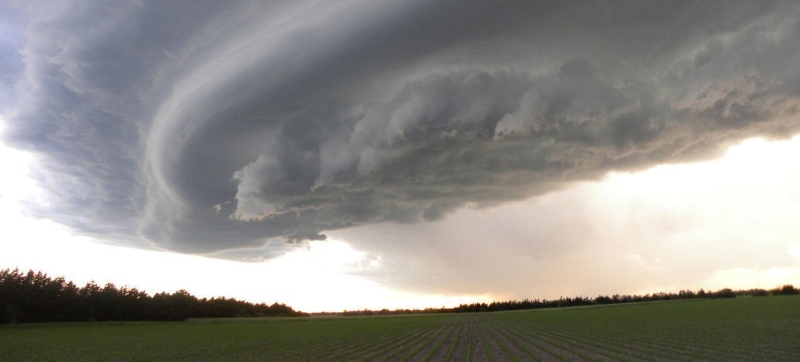
Scientists are convinced that climate change is increasing extreme weather events. WMO: climate change is to blame for devastating floods in Spain Climate and Environment
Record-breaking rainfall and flash floods in Spain have caused widespread loss of life, extensive destruction and economic losses. In the face of global climate change causing extreme weather events across the globe, the world’s top priority must be saving lives, according to the World Meteorological Organization (WMO).
Valencia has been hit hardest by the floods in Spain. On the night of October 29-30, a year’s worth of rain fell at the weather station in Chiva in just eight hours. The death toll from the floods now exceeds 150 people. Tens of thousands of residents of Valencia were left without power, and transport links were disrupted. The Spanish government has declared a national three-day mourning.
In the province of Huelva in southwestern Spain, which was also hit by heavy rains, a red alert, the highest level of warning, was declared on November 1. In the east of Spain, including Valencia, a category two warning remains in effect.
Other regions of Europe have also been hit hard by floods this year. Heavy rains hit Central Europe in mid-September, breaking local and national rainfall records.
Natural disasters become more likely
According to the Intergovernmental Panel on Climate Change, extreme weather events that cause severe floods and droughts have become more likely and more destructive due to human-induced climate change.
“As a result of rising temperatures, the hydrological cycle has become faster, more erratic and unpredictable, and we increasingly face problems of too much or too little water. A warmer atmosphere holds more moisture, which contributes to heavy rainfall,” said WMO Secretary-General Celeste Saulo.
The phenomenon that hit Spain, known as an “isolated high depression,” often occurs in the autumn season, when residual warmth in the atmosphere from the summer suddenly clashes with cold air coming from the polar regions.
“The presence of warm air, fueled by excess moisture from the still-warm Mediterranean Sea, and the instability resulting from the conflict with cold air in the upper atmosphere, lead to the formation of large convective clouds with heavy rainfall and flash flooding,” explained Omar Baddour, head of WMO’s climate monitoring division. – Climate change is expected to intensify this trend by warming the oceans and adding moisture to the atmosphere.”
The Role of Climate Change
Last Thursday, climate scientists from the World Weather Attribution group, which includes experts from national meteorological and hydrological services, released a report stating that the current level of scientific development allows them to fairly accurately analyze the role of climate change in specific natural phenomena on the planet.
After conducting a rapid analysis for Spain, the group calculated that record rainfall was twice as likely and about 12 percent more powerful compared to the pre-industrial climate, which was 1.3 °C colder than today.
The scientists also found that that climate change has increased the intensity of rainfall and worsened flooding in the Sahel, West and East Africa, Asia (Nepal, India, Pakistan and Afghanistan) and southern Brazil this year. The study found that other factors, including urbanization, poor land and water management and poverty, contributed to some of the disasters.
